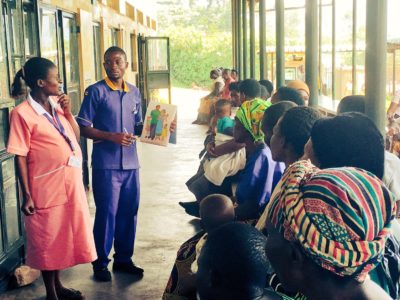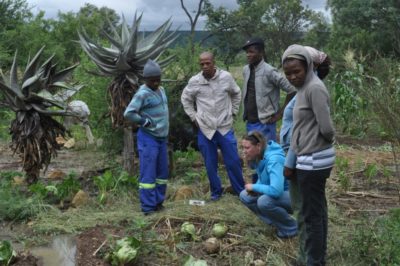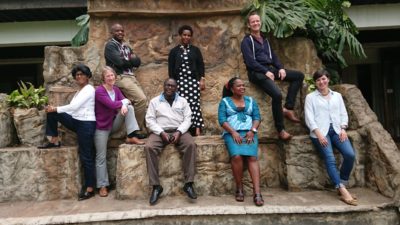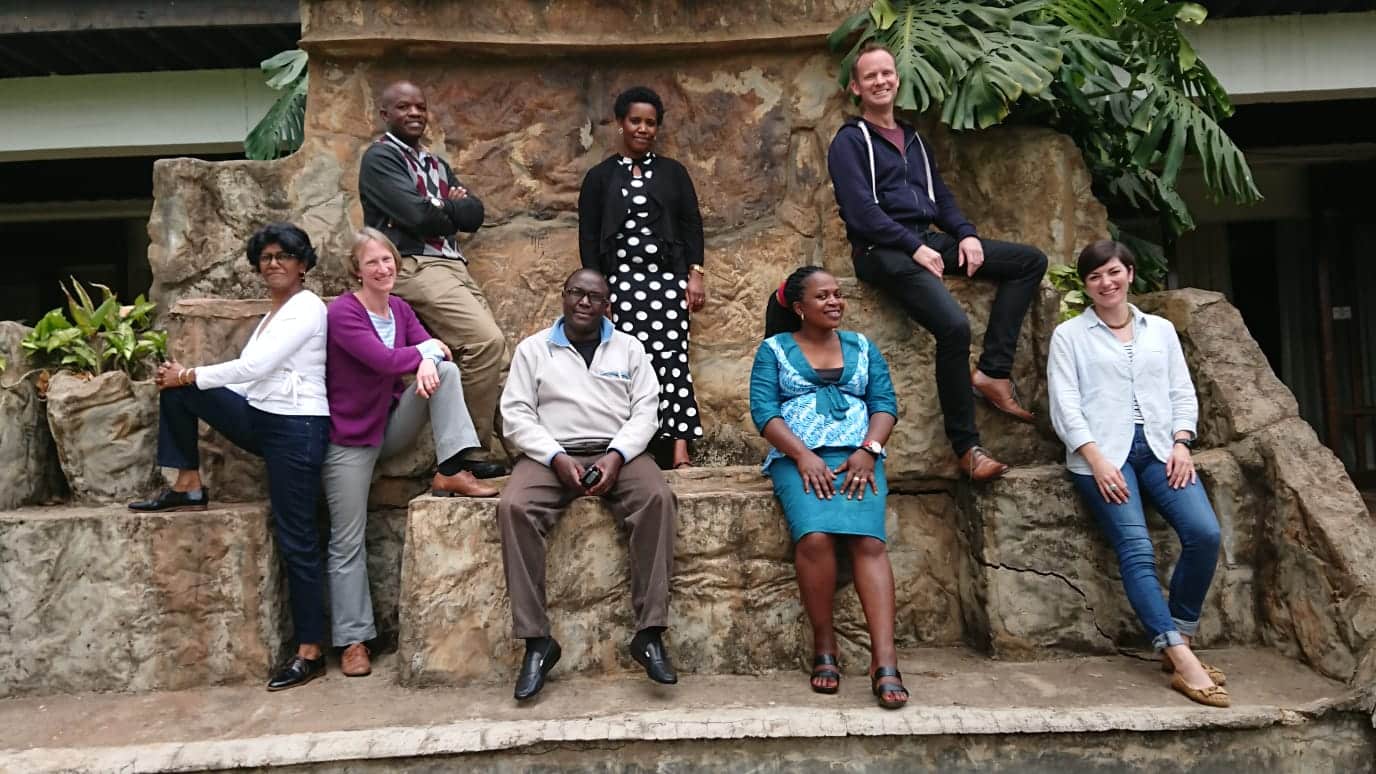
Family planning awareness raising with the public. Patients in all relevant departments hear messages about family planning while they wait for services at Bwindi Community Hospital, Uganda, which is located on the edge of Bwindi Impenetrable Forest.

Community members in Groot Marico, North West Province, South Africa receive integrated family planning and sustainable livelihoods training as part of the A Re Itireleng – Let’s do it ourselves! Project. Through the project, this remote community is empowered to respond to their health, family planning and livelihood challenges.
The only IUCN member with half a decade of family planning expertise
“The Margaret Pyke Trust is the only member of the International Union for the Conservation of Nature to have over 50 years of family planning expertise” – David Johnson, Chief Executive
The Margaret Pyke Trust is a UK registered charity, which for 50 years has been a leader in contraception. The Trust is the coordinator of the Population & Sustainability Network, a unique global alliance, promoting sexual and reproductive health and rights as a critical element of sustainable development.
“I think we are a unique, solutions-oriented organisation working at the intersection of health, women’s rights and environmental conservation. Our vision is a world where everyone can choose freely whether and when to have children, and how many: for the benefit of all people and the planet.” – Rosemary Massouras, Training Director
An organisation responding to communities’ complex needs
Communities’ needs are not siloed: the environment, health and livelihoods are all linked. Solutions addressing these needs must also be inter-linked and integrated. We work closely with health, family planning and environmental partners to develop and implement integrated solutions to support those communities that are most in need.

David Johnson (top right) and Kathryn Lloyd (bottom right) are part of the cross-sector team developing a project to protect the wetlands and the iconic grey crowned cranes inhabiting them, while also improving access to family planning information and services in South west Uganda.
“We advocate for and implement integrated development projects in rural areas where poor health, inadequate health facilities and environmental pressures come together to form a “perfect storm” of health, livelihood and environmental challenges.” – Kathryn Lloyd, Programmes and Operations Manager
Why family planning matters: not only to improve women and girls’ health and well-being but also to further conservation goals
According to one United Nations population projection, the world population will rise from 7.6 billion today to over 9.7 billion by 2050. Most of this growth will be in low and middle income nations. A considerable part of this population growth derives from an unmet need for family planning. Women with “unmet need” women who are sexually active and wish to avoid pregnancy but are not using modern contraception. It is poor rural communities in developing nations that face the greatest barriers to use of and access to reproductive health services, including family planning. Barriers to family planning prevent women from choosing freely when and whether to have children, threaten family health, create challenges for girls who want to complete their education, and lead to higher levels of fertility and more rapid rates of population growth. It is also poor rural communities that often depend most directly on natural resources for their livelihoods, food, water, shelter and cultural practices. When localised, or combined local and global human pressures on ecosystems intensify, both community health and environmental health suffer. Therefore, barriers to family planning are an environmental conservation issue, as well as a health, gender and empowerment issue.
“Removing barriers to family planning in the areas of greatest need is a great challenge but also a great source of opportunity for innovative, multi-sectoral partnerships and approaches. These multisector approaches can be more cost-effective, and generate results with a greater chance of long-term sustainability than single sector development interventions.” – Carina Hirsch, Advocacy and Projects Manager

Why we are joining Conservation Optimism
We would like to share our experience, evidence and tools with the Conservation Now network to broaden the global community of supporters of these multi-sectoral approaches, creating a positive movement that can bring about policy change. We acknowledge that the future health of our planet has never been more uncertain, and that the health of people and ecosystems are connected. The 2030 Development Agenda calls for these types of integrated solutions to integrated development challenges. In line with Conservation Now’s ethos, we strongly believe that by sharing information and working together on strategic projects and policies, we are optimistic that we can help human communities and their ecosystems thrive.


